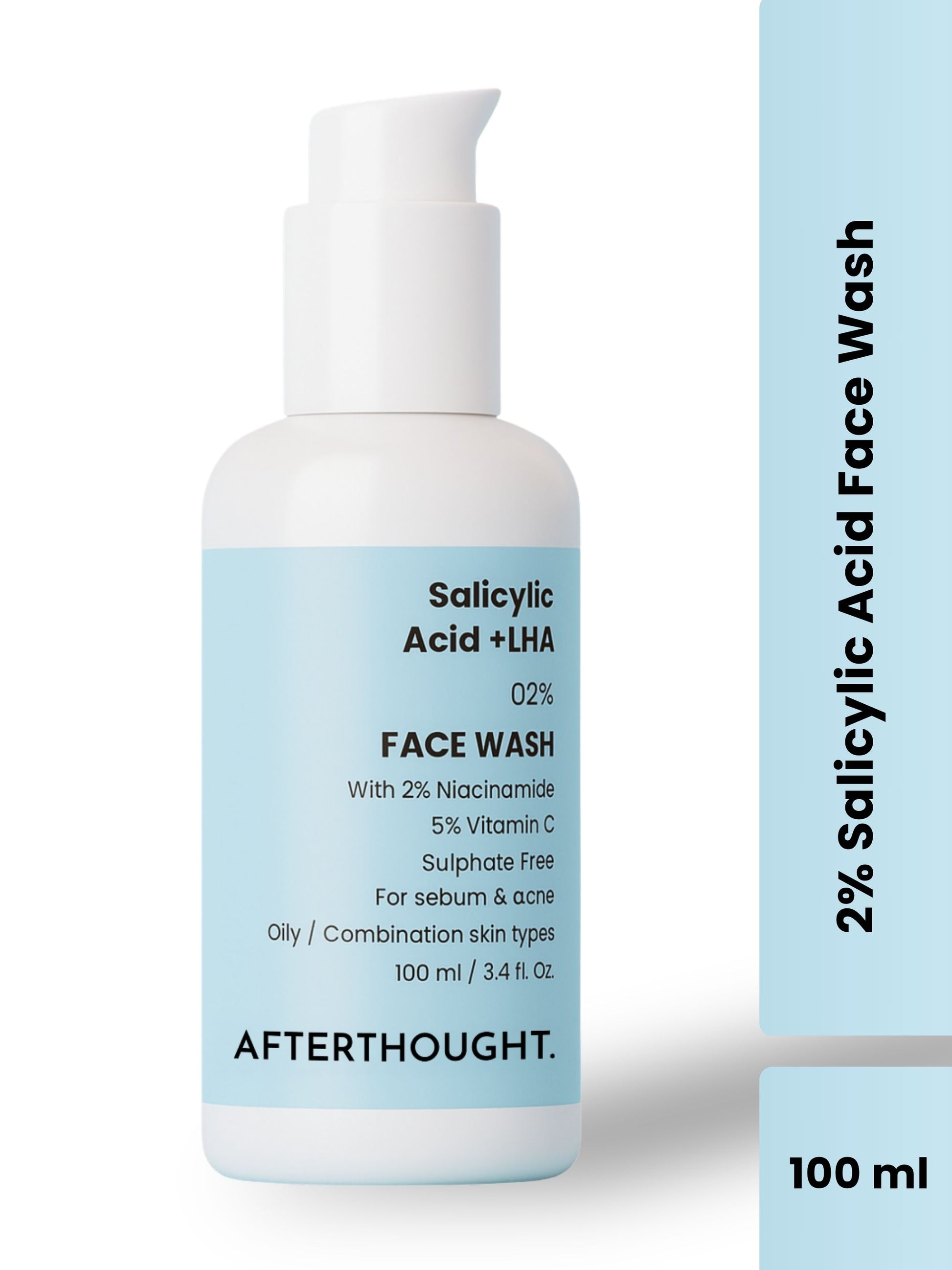How To Exfoliate Your Skin Naturally?
Exfoliation is a crucial step in any skincare routine. It helps to remove dead skin cells, unclog pores, and reveal the fresh, glowing skin beneath.
While there are many commercial products available, natural exfoliation methods can be just as effective, if not more so. Welcome to Afterthought.
In this guide, we will explore the benefits of natural exfoliation and provide detailed methods to exfoliate your skin naturally.
Why Exfoliate?
Before diving into the how-tos, it's essential to understand why exfoliation is necessary. Our skin naturally sheds dead skin cells to make way for new ones. However, this process can sometimes be slow, leading to a buildup of dead skin cells.
This buildup can cause your skin to look dull, feel rough, and become prone to breakouts. Regular exfoliation helps to speed up this process, resulting in smoother, brighter, and healthier skin.
Types of Exfoliation
There are two main types of exfoliation: physical and chemical.
- Physical Exfoliation: This involves using a granular substance or tool to manually remove dead skin cells. Examples include scrubs and brushes.
- Chemical Exfoliation: This uses natural acids or enzymes to dissolve dead skin cells. Examples include fruit acids and plant-based enzymes.
Natural Physical Exfoliants
Sugar Scrub
Sugar is a popular natural exfoliant because it is gentle yet effective.
How to Use:
Mix 1 tablespoon of granulated sugar with 1 tablespoon of coconut oil or honey. Gently massage the mixture onto your face in circular motions for about 1-2 minutes. Rinse with warm water and pat dry.
Benefits:
Sugar’s small granules make it suitable for all skin types. Coconut oil provides moisturizing benefits, while honey has antibacterial properties.
Coffee Grounds
Coffee grounds are excellent for exfoliation due to their coarse texture and antioxidant properties.
How to Use:
Mix 1 tablespoon of used coffee grounds with 1 tablespoon of olive oil or yogurt. Apply the mixture to your face and gently scrub in circular motions for 1-2 minutes. Rinse with warm water and pat dry.
Benefits:
Coffee grounds help to reduce inflammation and improve blood circulation. Olive oil and yogurt add moisture and nourishment to the skin.
Oatmeal
Oatmeal is a gentle exfoliant, making it perfect for sensitive skin.
How to Use:
Grind 1 tablespoon of oatmeal into a fine powder. Mix the oatmeal powder with 1 tablespoon of milk or water to form a paste. Gently massage the paste onto your face for 1-2 minutes. Rinse with warm water and pat dry.
Benefits:
Oatmeal soothes irritated skin and provides hydration. It’s hypoallergenic and suitable for all skin types.
Natural Chemical Exfoliants
Papaya
Papaya contains the enzyme papain, which helps to dissolve dead skin cells naturally.
How to Use:
Mash a few pieces of ripe papaya into a smooth paste. Apply the paste to your face and leave it on for 10-15 minutes. Rinse with warm water and pat dry.
Benefits:
Papaya helps to brighten the skin and reduce the appearance of blemishes. It’s rich in vitamins A and C, which provide additional skin benefits.
Yogurt
Yogurt contains lactic acid, a natural alpha-hydroxy acid (AHA) that gently exfoliates the skin.
How to Use:
Apply plain yogurt directly to your face. Leave it on for 10-15 minutes. Rinse with warm water and pat dry.
Benefits:
Yogurt helps to hydrate and soothe the skin. Lactic acid promotes cell turnover and improves skin texture.
Apple Cider Vinegar
Apple cider vinegar contains natural acids that help to exfoliate and balance the skin’s pH levels.
How to Use:
Dilute 1 part apple cider vinegar with 3 parts water. Apply the mixture to your face using a cotton pad. Leave it on for 5-10 minutes. Rinse with warm water and pat dry.
Benefits:
Apple cider vinegar helps to unclog pores and reduce breakouts. It can also help to lighten dark spots and improve skin tone.
Tips for Effective Exfoliation
- Be Gentle: Whether using a physical or chemical exfoliant, always be gentle to avoid irritating your skin.
- Don’t Overdo It: Exfoliate 1-3 times a week, depending on your skin type. Over-exfoliation can damage your skin barrier.
- Moisturize: Always follow up with a good moisturizer to keep your skin hydrated and protected.
- Sun Protection: Exfoliation can make your skin more sensitive to the sun, so always apply sunscreen during the day.
Conclusion
Natural exfoliation can be a simple and effective way to maintain healthy, glowing skin. By incorporating these natural methods into your skincare routine, you can enjoy the benefits of exfoliation without the need for harsh chemicals or expensive products.
Remember to listen to your skin and adjust your exfoliation frequency and methods based on how your skin responds. With a little care and consistency, you can achieve a radiant complexion naturally.
Also Read: What Is Emulsion Skin Care, Is It Better?









